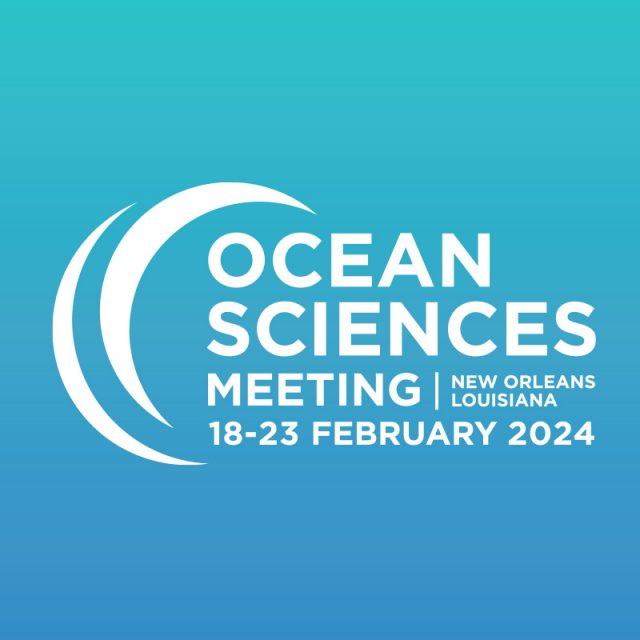Posts Tagged ‘Ocean Sciences Meeting 2024’
CGSN Events at OSM24
The Coastal and Global Scale Nodes (CGSN) group of the Ocean Observatories Initiative (OOI) is excited to be sharing recent technical and data advances with the Ocean Science community at the 2024 Ocean Sciences Meeting in New Orleans, LA. With a talk and poster, CGSN is demonstrating how we are advancing our ocean observing capabilities by (1) repurposing engineering data to expand wave observations, and (2) utilizing automated data quality control algorithms in an efficient way to identify storm events. These presentations exhibit how we are advancing our mission of being a science-driven ocean observing network that delivers real-time data from more than 900 instruments to address critical science questions regarding the world’s oceans.
The first opportunity to see CGSN in action at OSM24 is the talkExpanding surface wave observations at the OOI Pioneer Array – New England Shelf using buoy motion sensors at 9:00 am on Monday, Feb. 19th, as part of the session “OT11A: Innovation in in Situ Sensors and Sensing Platforms to Measure the Ocean I”. The Pioneer Array – New England Shelf collected data across the New England Shelf break for nine years from November 2013 through November 2022. Of the three surface moorings deployed across the array, only the Central Surface Mooring was equipped with a wave sensor. Recognizing that data from a single location could be restrictive for some types of analysis, CGSN identified an opportunity to increase the number of surface wave observations and extend their geographic extent to the full cross-shelf span of the Pioneer Array – New England Shelf. This was accomplished by using the engineering data (acceleration, angular rate, and magnetic vectors) collected by the MicroStrain 3-axis motion sensors (MOPAK) deployed on all three surface moorings. The data collected by the MOPAKs can be used to compute the bulk and directional wave statistics at each Surface Mooring in the array.
The next opportunity to learn about advances in CGSN data quality is at the posterApplication of Automated Quality Control Flags to OOI Data: Identification of Storm Events at Coastal Pioneer Array from 4 – 6 pm on Tuesday, Feb. 20th as part of the session “OT24B: Enhancing Data Quality Control in Ocean Sciences: Challenges and Innovations”. Quality control flags for the meteorological bulk flux package of instruments (METBK) from the recently-implemented quality tests based on the Integrated Ocean Observing System (IOOS) Quality Assurance / Quality Control of Real Time Oceanographic Data (QARTOD) standards may help data users identify and filter for events of interest that are hidden in OOI’s long-term records. The ability to flag interesting events is made more robust by the OOI Data Team’s efforts to complete data deep dives and add human-in-the-loop (HITL) annotations before the quality test thresholds are calculated. As a result of this process, the thresholds for barometric pressure recorded at the Pioneer Array – New England Shelf surface moorings are well-suited to identify storm events as unusually low pressure systems pass over the array.
These are two examples of ways that OOI is advancing the field of ocean observing and delivering science-ready data to the Ocean Sciences community.
Read More
